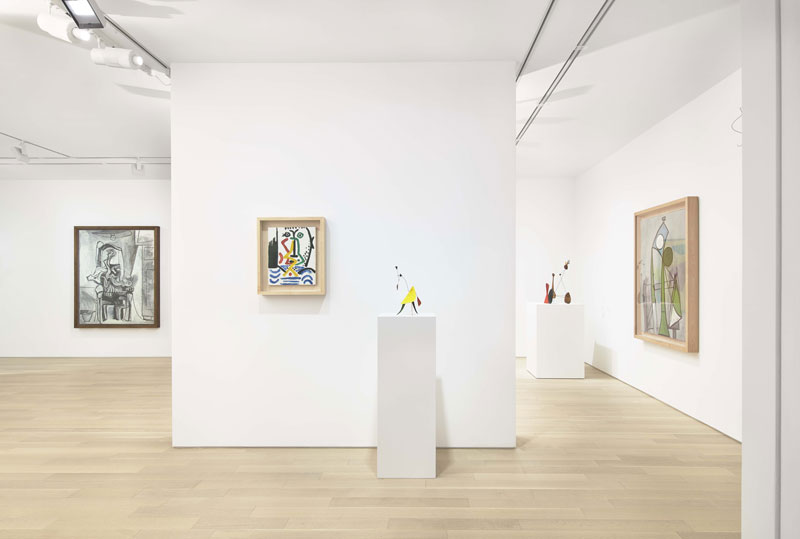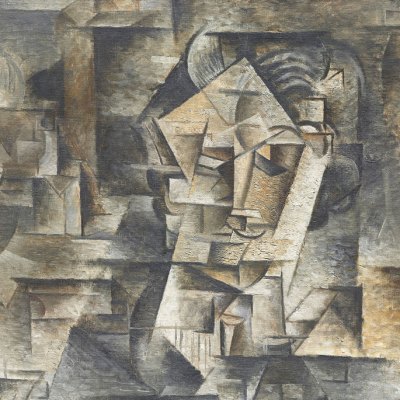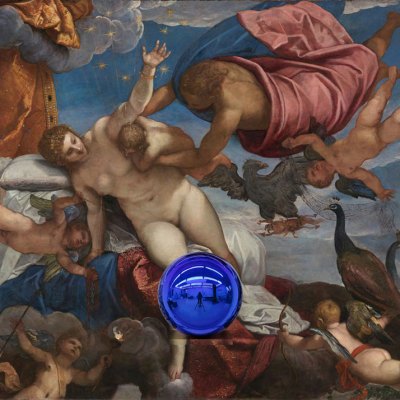‘Over two years we went right back, through our own 50 years of observing our grandfathers’ work since childhood’. These are no ordinary grandfathers under discussion: one is Pablo Picasso, the other Alexander Calder. Alexander Rower, president of the Calder Foundation, and Bernard Ruiz-Picasso, have turned their two-year trawl into an exquisite, museum-quality show (with a few pieces for sale) of 50 works, many of which have never shown publicly before. The show makes for a sparkling entry into New York by Almine Rech gallery.
Installation View: ‘Calder and Picasso’, Almine Rech Gallery, New York, 2016 All works by Alexander Calder © 2016 Calder Foundation, New York / Artists Rights Society (ARS), New York. All works by Pablo Picasso © 2016 Estate of Pablo Picasso / Artists Rights Society (ARS), New York.
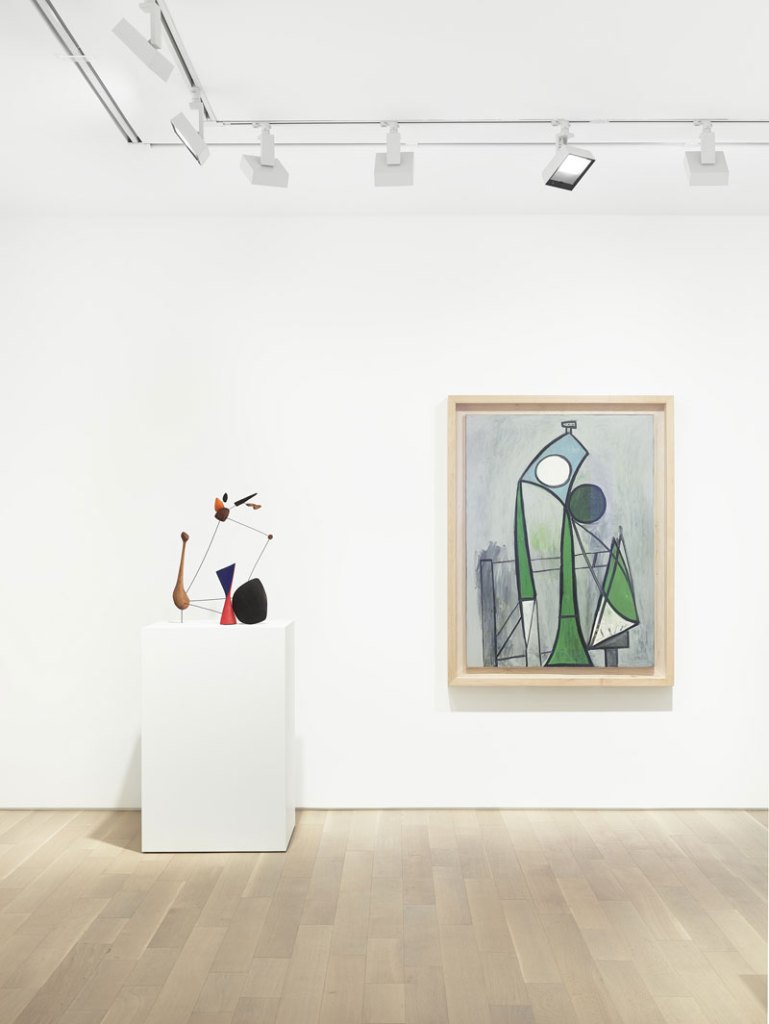
Almine Rech is married to Bernard Ruiz-Picasso, and her Brussels gallery shares a building with their family foundation, the Fundacion Almine y Bernard Ruiz-Picasso para el Arte (which holds a collection of Picassos and work by contemporary artists). She also runs galleries in Paris and London. Her inaugural New York show is the realisation of a long-held dream to bring the two artists together: ‘It’s not been done before because it’s not obvious’. Her son Paul de Froment, whose heavy French accent belies his 14 years of living in New York, will run the gallery. ‘We want to be trans-generational’, Rech explains. ‘We usually mix contemporary and modern. We are reinforcing relations with collectors by setting art in its historical context.’
Other well-established European galleries that have made their New York debuts this year have included the Lisson, Timothy Taylor and Galeria Nara Roesler. But none has taken such a classic path: and none, perhaps, has created such a gem of a show.
The grandsons are standing in front of a portrait by Picasso near the start of the three-room exhibition. ‘One of the things I learnt from Bernard’, says Rower, ‘is that all of Picasso’s portraits are self-portraits. Bernard was teaching me throughout.’ Next to Picasso’s striking, colourful work stands Calder’s Wire Woman, naked, defiant, and made of one piece of wire, which adds tension to the piece. ‘It shows Calder’s usual depiction of woman, powerful, in control.’ They talk of Picasso’s lifelong preoccupation with mortality – of what Rower calls ‘his keeping it at bay every day of his life’ – and Calder’s preoccupation with ‘the universality of all of us, the essence’.
Installation View: ‘Calder and Picasso’, Almine Rech Gallery, New York, 2016 All works by Alexander Calder © 2016 Calder Foundation, New York / Artists Rights Society (ARS), New York. All works by Pablo Picasso © 2016 Estate of Pablo Picasso / Artists Rights Society (ARS), New York.
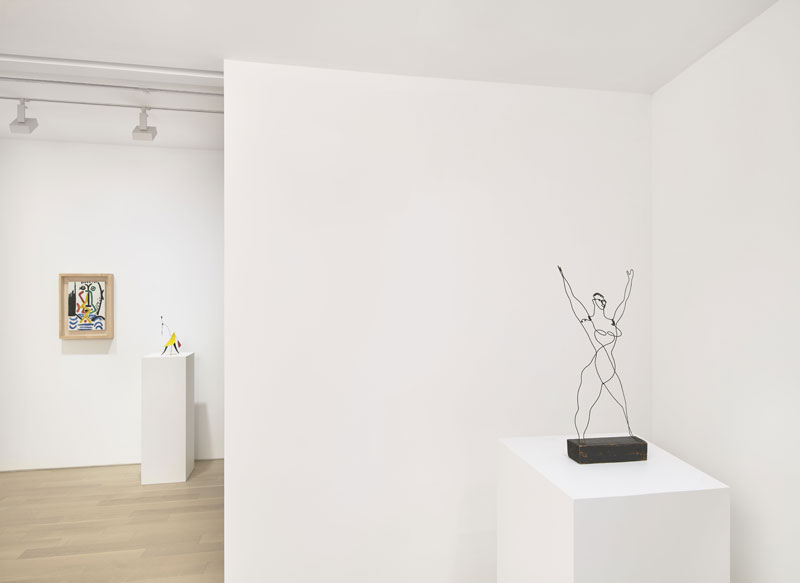
The pieces hang in groups – often in pairs that show how each artist tackled similar subjects over the same years. One pairing, for example, reveals their differing depictions of a woman smoking a cigarette in the 1930s. These conversations between the artists’ works reflect the time and attention Rower and Ruiz-Picasso spent selecting the show. ‘We went through the slow process of discovering and studying all that they did’, Rower says, ‘so that we made the right combinations. We have tried to go back to the artists’ intentions.’ Above all, he says, ‘we studied their occupation with the void, the greatness of the void. That was the revelatory thing; both artists defining it, in shadows, in 3D, all the time’
Of course, there are childhood memories, too. Ruiz-Picasso remembers his grandfather giving him a big, bold linocut of a jester ‘when I was four years old in 1963. It was hung on my bedroom wall. I was terrified of the face, so it had to be taken down!’ It seems doubtful anyone will make such a request here.
‘Calder and Picasso’ is at the Almine Rech Gallery, New York, until 17 December.
Installation View: ‘Calder and Picasso’, Almine Rech Gallery, New York, 2016 All works by Alexander Calder © 2016 Calder Foundation, New York / Artists Rights Society (ARS), New York. All works by Pablo Picasso © 2016 Estate of Pablo Picasso / Artists Rights Society (ARS), New York.
